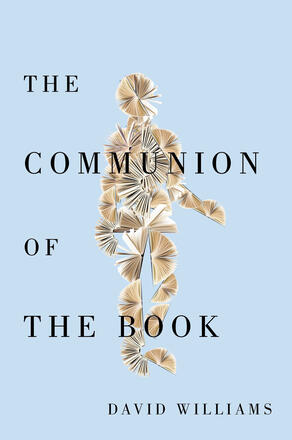
The Communion of the Book
Milton and the Humanist Revolution in Reading
How reading instituted modern values – and how readers were the makers of the modern world.
Description
The modern world was not created by the civilization of Renaissance Italy, the advent of the printing press, or the marriage restrictions imposed by the medieval church. Rather, it was widespread reading that brought about most of the cognitive, psychological, and social changes that we recognize as peculiarly modern.
David Williams combines book and communications history with readings of major works by Petrarch, Bruni, Valla, Reuchlin, Erasmus, Foxe, and Milton to argue that expanding literacy in the Renaissance was the impetus for modern civilization, turning a culture of arid logic and religious ceremonialism into a world of individual readers who discovered a new form of communion in the act of reading. It was not the theologians Luther and Calvin who first taught readers to become what they read, but the biblical philologist Erasmus, who encountered the divine presence on every page of the gospels. From this sacramental form of reading came other modes of humanist reading, particularly in law, history, and classics, leading to the birth of the nation-state. As literacy rates rose, readers of all backgrounds gained and embodied the distinctly modern values of liberty, free speech, toleration, individualism, self-determination, and democratic institutions. Communion and community were linked, performed in novel ways through revolutionary forms of reading.
In this conclusion to a quartet of books on media change, Williams makes a compelling case for readers and acts of reading as the true drivers of social, political, and cultural modernity – and for digital media as its looming nemesis.
Reviews
“Informed by an immense range of reading, Williams’s work spans periods, countries, and disciplinary fields. His analysis is sharp, incisive, and refreshingly prone to moving in unexpected directions. The prose is assured and elegant, erudite without being pedantic, and enjoyably rewarding for the reader.” Andrea Walkden, University of Toronto and author of Private Lives Made Public: The Invention of Biography in Early Modern England
“I can’t think of anything to compare this book to: it has so much original to say. The Communion of the Book illuminates Milton as a reader and a writer and the influence of humanism in seventeenth-century England. Williams’s research is a monumental synthesis of scholarship in a wide variety of fields, assembled in an original narrative that provides fresh insights.” Sabrina Alcorn Baron, University of Maryland and co-editor of The Politics of Information in Early Modern Europe